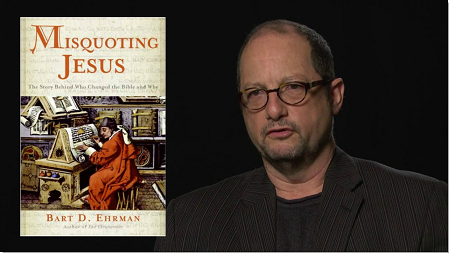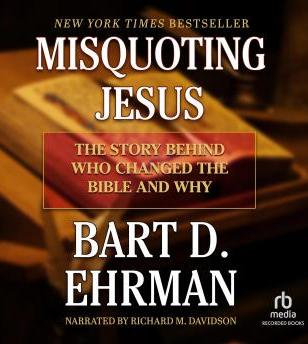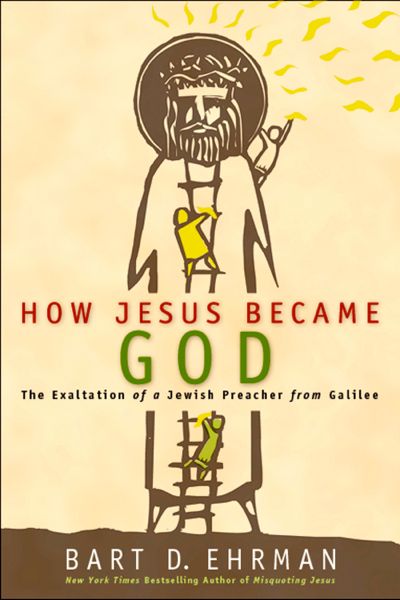|
Word Gems
exploring self-realization, sacred personhood, and full humanity
Prof. Bart D. Ehrman
|
There is only one section of the New Testament that speaks to the traditional, orthodox concept of the Trinity. However, this is not part of any Greek manuscript until the 15th century. This is a purposeful addition by a copyist who believed such ought to be in the text.
|
return to the main-page article on "Bible"
|
Editor's prefatory comment:
Dr. Ehrman explains that the 5700 early copies of the New Testament – copies of copies of copies – contain hundreds of thousands of discrepancies.
Many of these are inconsequential but a significant number alter the meaning of the text in important ways. Most of these constituted mere human error in copying but some of them, it appears, were purposefully injected into the text by editorial judgment of scribes.
This entire area of scholarship is far more complex than most realize, leading the objective reviewer to understand that, in many cases, we have no knowledge of the original text of the New Testament.
In addition to Dr. Ehrman’s books, his lectures are available on youtube; for example: https://www.youtube.com/watch?v=pfheSAcCsrE&t=12s

|
Dr. Ehrman speaks of this in his lectures on "The New Testament," in the section, "Do We Have The Original New Testament?," published by The Great Courses.
- I John 5:7 For there are three that bear witness in heaven: the Father, the Word, and the Holy Spirit; (8) and these three are one. (NKJV)
In the margin, a qualifier is added:
Prof. Erhman: "There's only one verse in the entire NT that contains the traditional, orthodox doctrine of the Trinity." We find it in I John 7-8. But this reference is an insertion from the fifteenth century, and does not appear in any earlier Greek manuscript. About 500 years ago a scribe took it upon himself to edit the biblical text by offering an insertion. Clearly, a fraudulent action.
This duplicity is freely admitted, even in the margins of bibles, and yet it continues to be printed in the "infallible" Bible as if it ought to be there.
|


